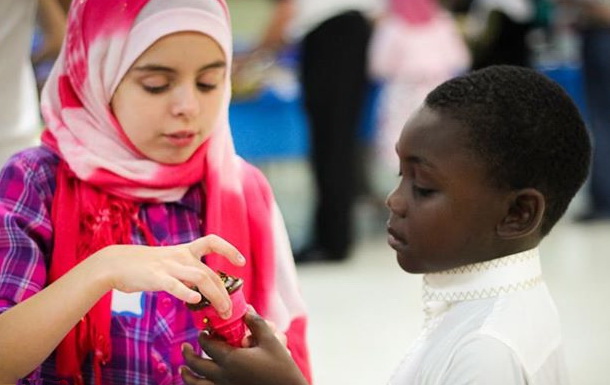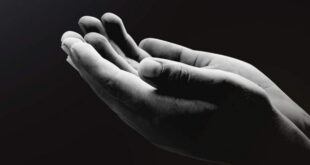Allah says in the Quran,
“Take Sadaqah (alms) from their wealth in order to purify them and sanctify them with it, and invoke Allah for them. Verily! Your invocations are a source of security for them, and Allah is All-Hearer, All-Knower.” [Surah Al-Tawbah, 9:103]
What is Sadaqah?
Sadaqah is derived from the word “sidq” which means sincerity. Sadaqah is voluntary charity; any action that has a good intention behind it is considered to be sadaqah. Sadaqah along with Zakat, helps bring about growth, increase blessings, prosperity, purity, compensation, reward, preservation of wealth and warding off evil and problems from it, by Allah’s leave. It also helps to strengthen love, friendship, mutual support and brotherhood between rich and poor, so that the poor man in Muslim society will feel that he is living in an atmosphere of co-operation not conflict, selflessness not selfishness, equity not compulsion, brotherhood not oppression, domination or apathy. He will feel that he is surrounded by gentle and compassionate souls in an atmosphere of dignity and mercy, not those who are merciless and hard-hearted.
Some examples of the different forms of sadaqah are:
- Money to the needy.
- A smile.
- Feeding the needy.
- Giving good advice.
- Taking care of an animal.
- Helping someone in times of difficulty.
- Contributing in social work.
- Getting a school, mosque, orphanage etc. built.
Giving Sadaqah in Ramadan is especially important since every good deed we do is counted as double the reward.
The Prophet (salallahu alayhi wa sallam) increased giving charity in Ramadan so much so as the likeness of the wind blowing. We should grasp the opportunity to give back to our community as much as possible throughout Ramadan. Even a small act of putting water outside your home for birds to drink from during the hot summer days may be big in the eyes of Allah subhanahu wa ta`ala.
Providing the needy with iftar is also encouraged, the Prophet (salallahu alayhi wa sallam) said:
“Whoever opens the fast of a fasting person will receive a reward equal to the fasting person’s with no reduction in the reward of the fasting person.” [Tirmidhi]
Instead of hosting big, expensive iftar parties at restaurants for people who can afford to provide for themselves, wouldn’t it be so much more satisfying to spend that much on the countless people that are in need? In Somalia, there are people struck with famine and still have the devotion of keeping their fasts. Imagine not having a single morsel of food to open your fast with. What are we, as Muslims, doing to help them? Let’s try to set our priorities straight.
Allah subhanahu wa ta`ala says in the Quran,
“And of them are some who made a covenant with Allah (saying): “If He bestowed on us of His Bounty, we will verily, give Sadaqah (Zakat and voluntary charity in Allah’s Cause) and will be certainly among those who are righteous.” Then when He gave them of His Bounty, they became niggardly [refused to pay the Sadaqah (Zakat or voluntary charity)], and turned away, averse.” [Surah Al-Tawbah, 9:75-76]
“O you who believe! Do not render in vain your Sadaqah (charity) by reminders of your generosity or by injury, like him who spends his wealth to be seen of men, and he does not believe in Allah, nor in the Last Day. His likeness is the likeness of a smooth rock on which is a little dust; on it falls heavy rain which leaves it bare. They are not able to do anything with what they have earned. And Allah does not guide the disbelieving people.” [Surah Al-Baqarah, 2:264]
“And spend (in charity) of that with which We have provided you, before death comes to one of you and he says: “My Lord! If only You would give me respite for a little while (i.e. return to the worldly life), then I should give Sadaqah (i.e. Zakat) of my wealth , and be among the righteous [i.e. perform Hajj (pilgrimage to Makkah)].” [Surah Al-Munafiqun, 63:10]
There is no limit to giving Sadaqah which differentiates it from Zakah. It is not an obligatory act of worship, but it is highly encouraged by Allah subhanahu wa ta`ala as said by Him in the Quran:
“They ask you (O Muhammad) what they should spend in charity. Say: ‘Whatever you spend with a good heart, give it to parents, relatives, orphans, the helpless, and travelers in need. Whatever good you do, God is aware of it.'” [Surah Al-Baqarah, 2:215]
Why should we give Sadaqah?
- To receive blessings from Allah and it is also a way to protect our wealth. Allah says in the Quran: “Whatever you spend for good, He replaces it. And He is the Best of Providers.” [Surah Sab’a, 34:39]
- As a penance for sins: whenever we commit a sin we should immediately repent. One way of doing so is through giving sadaqah. Allah has said: “Good deeds annul bad deeds. This is a reminder for the conscientious.” [Surah Hud, 11:114]
- Sadaqah serves as a protection from calamities, such as accidents. It is a shield from the affliction of diseases and sudden death befalling us. The Prophet (salallahu alayhi wa sallam) said: “Give charity without delay, for it stands in the way of calamity.” [Tirmidhi]
- It raises our rank towards our ultimate goal: Jannah. The Prophet (salallahu alayhi wa sallam) said: “Save yourself from Hellfire by giving even half a date in charity.” [Bukhari]
- Sadaqah removes the greediness in our hearts. Since it is a good action coming from our heart rather than through an obligation, it can eventually lead us to becoming better people, if we make it a habit. Allah says: ““Take Sadaqah (alms) from their wealth in order to purify them and sanctify them with it, and invoke Allah for them. Verily! Your invocations are a source of security for them, and Allah is All-Hearer, All-Knower.” [Surah Al-Tawbah, 9:103]
- Satisfaction and happiness. Sadaqah gives us a satisfying feeling of helping people in need and giving back to our community. It is responsible for creating a better society and also encourages others to do acts of charity.
Finally, I would like to end with a beautiful hadith –
The Prophet (salallahu alayhi wa sallam) said: “Allah, the Majestic and Mighty, shall say on the Day of Judgment: ‘O son of man! I was ill and you did not visit me.’ He will reply: ‘O my Lord! How could I visit You and You are the Lord of the Worlds?’ Allah shall say: ‘Did you not know that My slave, so-and-so, was ill and you did not visit him? If you had visited him, you would have found Me with him. O son of man! I asked you for food and you did not give it to me.’ He will reply: ‘O my Lord! How could I give You food–You are the Lord of the Worlds?’ Allah shall say: ‘Did you not know that My slave, so-and-so, asked you for food and you did not give it to him? Did you not know that if you had given the food, you would have found that with Me? O son of man! I asked you to quench My thirst and you did not.’ He will say: ‘O my Lord! How could I quench Your thirst–You are the Lord of the Worlds?’ Allah shall say: ‘My slave, so-and-so, asked you to quench his thirst and you did not. If you had given him to drink, you would have found that with Me.’ ” [Sahih Muslim]
May Allah continue providing us with blessings so that we can share those blessings with others, Ameen.
 navedz.com a muslim's Quest for the truth
navedz.com a muslim's Quest for the truth










jazakallahkhair for the extract.
Yesterday a beggar(old man) came to my place asking for money.i had nothing so i went up to the uncle and said uncle i dont have any money can you come back later or on another day. what he told me was if yu give me something it means that you are giving it to allah(swt). so i sent him with some dates and etc.